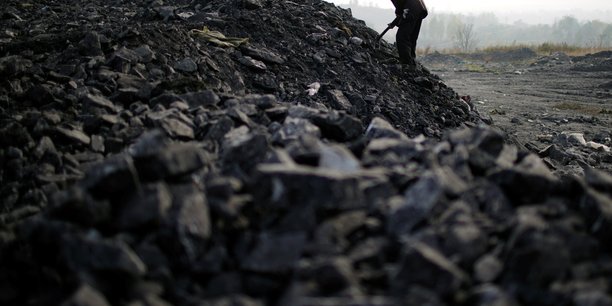
Fifth round of European sanctions against Russia. This Thursday evening, representatives of the Twenty-seven confirmed the European Commission’s proposals after the discovery of dozens of civilian bodies last weekend in Boutcha, near Kiev. Indeed, they have made the decision to impose an embargo on Russian coal and close European ports to Russian ships. These new measures also include a ban on exports to Russia, in particular high-tech goods, up to EUR 10 billion, and the asset freeze of several Russian banks.
Coming into force at the beginning of August
This is the first time Europeans have hit the Russian energy sector, on which they are heavily dependent. The European Union imports 45% of its coal from Russia worth EUR 4 billion per year. This embargo will come into effect at the beginning of August, 120 days after the publication of the new package in the EU Official Gazette, which is expected on Friday.
The list of Russian products banned from importing into the EU is also being extended to include certain “raw materials and critical materials” worth an estimated EUR 5.5 billion per year, in order to finance the Moscow war effort. fuses.
It is now prohibited for Russian and Belarusian road hauliers to operate in the EU. The EU’s blacklist is also being expanded to include more than 200 names of individuals, including Russian oligarchs and, as the US has done, Vladimir Putin’s two daughters, according to a document accessed by AFP.
Russia “will face a long descent into economic, financial and technological isolation,” European Commission President Ursula von der Leyen said on Twitter.
No embargo on Russian energy for the G7
Separately, the G7 countries also announced new economic sanctions against Russia on Thursday, including a ban on new investment in key sectors in response to “the ongoing escalation of the war” in Ukraine.
“We are banning new investments in key industries of the Russian economy, including energy,” the G7 powers said in a press release, which also announced “additional sanctions against the Russian defense sector” and against “elites and their relatives” who provide support to the war decided by Russian President Vladimir Putin against Ukraine.
According to the text, export bans on certain goods are extended, sanctions against Russian banks and state-owned companies are extended.
While an embargo on energy imports is not envisaged at this stage, the G7 countries want to “advance” their plans to reduce their dependence on Russian energy, which would include “phasing out Russian coal”.
The group of seven superpowers also called on Thursday for Russia’s suspension from the United Nations Human Rights Council, which the UN General Assembly passed in the afternoon.
Of the 193 member states of the General Assembly, 24 voted against this suspension – the second in UN history after the ouster of Libya in 2011 – imposed by the United States.
And 58 countries abstained, but the abstentions, a choice denounced by Kiev, failed to take into account the required two-thirds majority of the only votes for and against. Among the countries that voted against is China, which denounced a “hasty approach”, the “oil on the fire” and a “dangerous precedent”.
†
Greece to double coal production
Greece will double its lignite production over the next two years to reduce its dependence on Russian gas, Greek government spokesman Yannis Εkonomou said on Thursday.
“Lung coal is polluting and natural gas is cheaper under normal circumstances,” said the spokesman in a press conference.
But due to the war in Ukraine and Greece’s need to diversify its energy supply, the measure will be “necessary” for the next two years, the spokesman said. Greece is 40% dependent on Russian natural gas and since the beginning of the Russian invasion of Ukraine on Feb. 24, Greece has been looking for alternative solutions to “ensure the country’s normal energy supply,” according to the Greek Ministry of Energy. ‘Environment and Energy. Speaking at the opening of a photovoltaic park in northern Greece, Prime Minister Kyriakos Mitsotakis said on Wednesday that “Greece’s energy policy must be flexible, taking into account the current situation”.
“Under no circumstances” will these changes affect Greece’s announced target to cut greenhouse gas emissions by 55% by 2030 and achieve climate neutrality by 2050, the head of government said. But the promise to shut down lignite plants by 2023 will not be kept, the left opposition denounced.
“It is an admission of failure,” said the Socialist Party (Kinal).
(with AFP)



